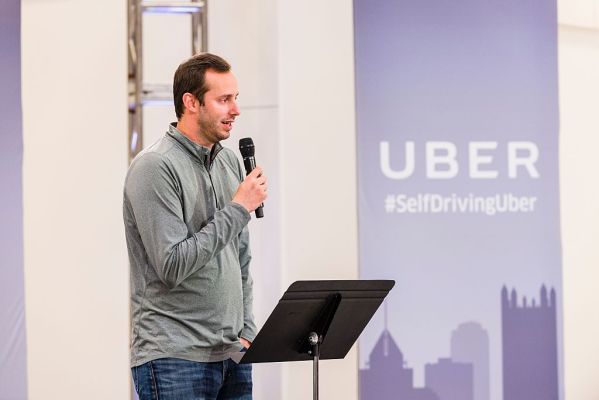When Waymo sued Uber earlier this year, claiming that its former employee stole 14,000 documents containing trade secrets about its self-driving car project and took the documents to Uber, it was a stain on Uber’s reputation. Now, it looks like the damage could be more extensive — the judge in the civil case has referred the theft claims to the U.S. Attorney for a possible criminal investigation.
Anthony Levandowski, the engineer accused of stealing the documents, has broadly invoked his 5th Amendment rights against self-incrimination in the case, refusing to answer questions about the documents and his work at his self-driving truck startup Otto or on Uber’s self-driving car project.
Levandowski’s silence has stymied the discovery process in the lawsuit, as Uber has argued that it can’t release documents related to its acquisition of Otto without violating its employee’s 5th Amendment rights.
Judge William Alsup, who is presiding over the civil lawsuit, referred the case to the U.S. Attorney tonight — a move that could result in a criminal investigation into Levandowski’s behavior.
This kind of referral does not guarantee that the U.S. Attorney’s Office will open an investigation or bring any charges against Levandowski. It just opens up the possibility. An Uber spokesperson declined to comment on the referral.
Alsup’s referral is yet another surprise in an already dramatic case. Waymo has accused Levandowski of setting up Otto as a smokescreen, claiming he had no intention of running his own company and always planned to bring Waymo’s secrets to Uber. To back up its explosive claim, Waymo cites legal documents that link Levandowski to Uber just days after he departed Waymo in January of 2016 (Uber didn’t officially acquire Otto until August of that year).
Uber, meanwhile, has maintained that LiDAR experts it hired from Carnegie Mellon independently developed its technology before Levandowski arrived at the company. Uber’s attorneys haven’t said whether Levandowski stole the Waymo files, but say no Waymo files ever made it onto an Uber computer.
“This case is referred to the United States Attorney for investigation of possible theft of trade secrets based on the evidentiary record supplied thus far concerning plaintiff Waymo LLC’s claims for trade secret misappropriation. Said evidentiary record is described in detail in the Court’s order, also issued today, on Waymo’s motion for provisional relief. The Court takes no position on whether a prosecution is or is not warranted, a decision entirely up to the United States Attorney,” Judge Alsup wrote in the referral.
Alsup’s ruling on Waymo’s motion for provisional relief is not yet public. Waymo asked the judge to prevent Levandowski from overseeing Uber’s self-driving efforts — a move Uber claims Levandowski has already made voluntarily — and to prevent Uber from using any of its trade secrets. The latter point is a contentious one between the two companies.
Uber claims that its LiDAR systems were developed independently, while Waymo claims that Uber’s systems rely on its stolen trade secrets and patents. Alsup’s ruling is expected to be made public shortly.
